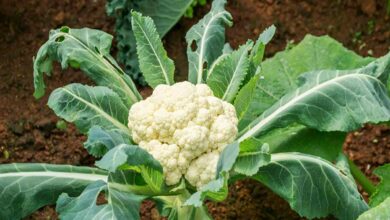Mushroom cultivation is no less than a boon for farmers in North India, know the reason
Benefits of Mushroom Farming: North India’s rich and varied agroclimatic conditions make it ideal for a broad range of crops and agricultural goods. Given the climate and agricultural circumstances of North India, mushroom cultivation—a high-value, low-input crop—is especially advantageous. This article discusses the significance, favorable circumstances, advantages, and future possibilities of mushroom growing.

1. North India’s Climate Is Perfect for Mushroom Production
In North India, summers may be hot and muggy, while winters are chilly and dry. In this area, it is easy to cultivate a variety of mushrooms, including button mushrooms, shiitake, oyster, and milky mushrooms.
Winter Button Mushrooms: In the chilly environment of North India, button mushrooms (Agaricus bisporus) thrive at temperatures between 15 and 25°C and humidity levels between 80 and 90%.
Summer oyster mushrooms, Pleurotus spp., thrive in temperatures between 20 and 35°C, which is ideal for the summer climate in North India.
Lowland and Hilly Areas: Both lowland states like Uttar Pradesh and Bihar, as well as hilly regions of North India like Himachal Pradesh and Uttarakhand, are suitable for mushroom farming.
2. The Need for North Indian Agriculture to Grow Mushrooms
There are a number of reasons why mushroom growing is becoming more and more necessary in North India.
(a) The increasing significance of nutrition
Protein, vitamins, minerals, and antioxidants are all abundant in mushrooms. For vegans and others who are health-conscious, it is the perfect meal choice. The need for wholesome food is rising in North India as the population grows.
(a) Requiring less land and resources
Growing mushrooms doesn’t take up a lot of space. Even in cities, it may be cultivated in cramped quarters. Given North India’s expanding population and depleting land resources, this is significant.
(b) Utilizing crop waste
A vast number of agricultural wastes, including wheat, rice, and sugarcane, are produced in North India. By making use of these leftovers, mushroom farming helps with waste management and environmental preservation.
(d) Job openings
It is possible to begin mushroom growing with little financial outlay. For young people without jobs and small farmers in both rural and urban regions, this boosts income and job prospects.
3. Advantages of growing mushrooms
(a) A very lucrative harvest
Growing mushrooms yields large earnings quickly. The market has a high demand for button and oyster mushrooms, which helps producers make excellent money.
(a) Organic manure production
After mushrooms are produced, the discarded substrate may be turned into organic manure, which improves soil fertility.
(c) Defense against the consequences of climate change
Because mushroom farming is conducted in controlled environments, it may be shielded from the negative consequences of climate change.
(d) Medical and health applications
Additionally, the pharmaceutical business uses mushrooms. They have immune-stimulating, cholesterol-lowering, and anti-cancer effects.
4. Problems and fixes
(a) Insufficient technological expertise
One of the biggest problems is that rural farmers lack technical expertise about mushroom farming. Programs for awareness and training are required for this.
(c) Marketing and storage
A perishable product is mushrooms. In North India, the cold storage and marketing network has to be strengthened.
(b) Initial outlay of funds
Initial investment is necessary for the infrastructure and supplies needed for mushroom cultivation. The government and non-governmental organizations need to provide farmers financial support.
5. Government programs and initiatives
To encourage farmers to start growing mushrooms, the Indian government and state governments are offering financial incentives, technical support, and training. In North India, initiatives like the Agricultural Technology Management Agency (ATMA) and the National Horticulture Mission (NHM) are encouraging the growth of mushrooms.
6. Prospects for the Future
In North India, mushroom cultivation has the potential to double farmers’ incomes and improve the sustainability of agriculture. It is a lucrative endeavor because of the increasing demand for mushrooms in export and industrial sectors.





